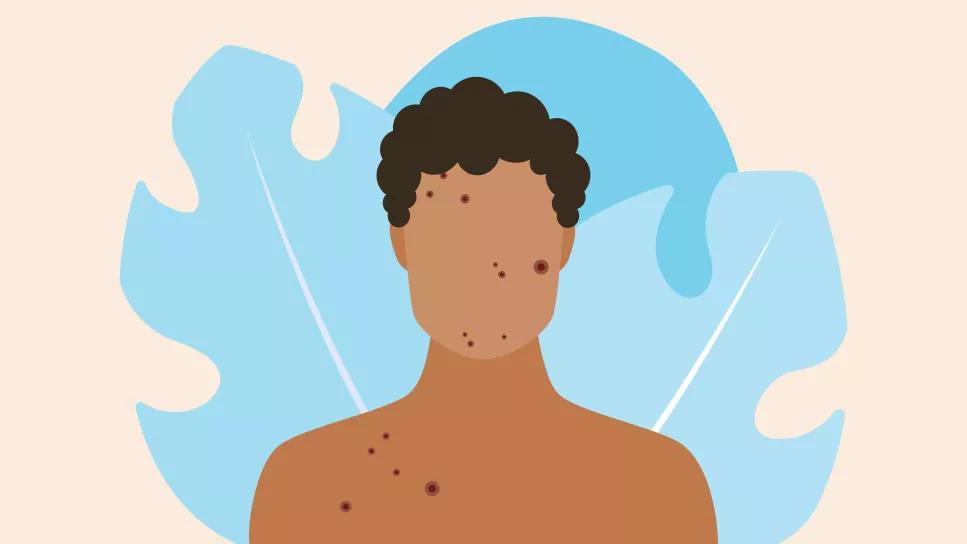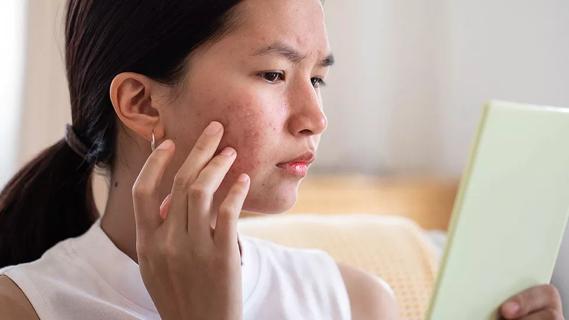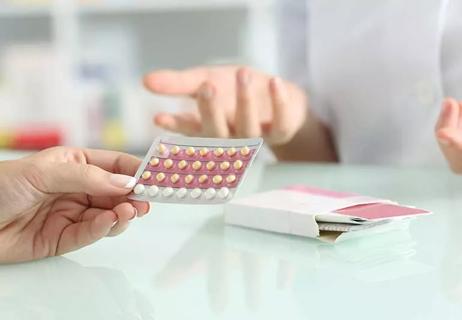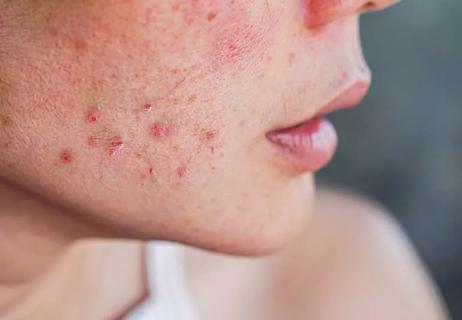As you age, hormones can continue to play a big role in breakouts

You thought acne was a problem you’d left behind as a teenager, or at least in your 20s. But now you’re in your 30s … or 40s … or 50s — and your skin still seems to be in rebellion.
Advertisement
Cleveland Clinic is a non-profit academic medical center. Advertising on our site helps support our mission. We do not endorse non-Cleveland Clinic products or services. Policy
What the heck is going on? And more importantly, what can you do about it?
Adult acne, also known as hormonal acne, often shows up on your chin and jawline, but it can happen just about anywhere on your face. It's also common on your chest, shoulders and back.
“Many people think acne is predominantly and only a teenage condition, but it can actually peak at two times in our lives,” says dermatology specialist Lauren Zamborsky, CNP.
“We see a lot of acne before and during the time of puberty, with the first rush of hormones into the system — but we also see acne affecting people in their 30s, 40s and 50s, often around the mouth (something we often refer to as the perioral region).”’
Zamborsky explains what’s behind adult acne and what steps you can take to get yourself in the clear.
Puberty marked your first rush of hormones, ushering in the transition from child to adult — and bringing acne along for the ride. But as you get older, it’s not like hormones go away. And as in your younger years, hormonal changes can still wreak havoc on your skin.
“As in the teenage years, later outbreaks are also related to hormones,” Zamborsky says. “Menopause is a common cause, but other hormonal issues can also cause acne.”
Advertisement
Let’s take a look at some of those causes.
The hormonal fluctuations that come with pregnancy can lead to a whole host of bodily changes, including acne. It may clear up as your pregnancy progresses, or it can carry over into postpartum acne.
Menopause causes a drop in your estrogen levels and an increase in androgen, which stimulates your skin’s natural oil production. More oil means more acne.
Acne is one of the symptoms of polycystic ovary syndrome (PCOS), a type of hormonal imbalance that also brings irregular periods, excessive hair growth and weight gain. Having PCOS typically also comes with a higher rate of testosterone, which can cause painful cystic acne, particularly on the chin and jawline.
Stress can impact your body in countless ways, including worsening existing skin issues. Why? Because (you guessed it) it causes fluctuations in hormones — specifically cortisol, known as the “stress hormone.”
“In addition to all the other issues it can cause, stress can aggravate any skin condition,” Zamborsky confirms. “Adopting healthy stress management habits can help your skin.”
Some types of medications can affect your skin.
“If you’re experiencing new acne as an adult, talk to your doctor about any medications you’re taking — or have stopped taking — that could be contributing to it,” Zamborsky urges.
Some of the everyday actions you take can have a hand in what’s happening to your skin, too. Using greasy hair and skin products (we’re lookin’ at you, beard oil and hair care products!) can plug up hair follicles and lead to acne. A diet high in sugar and dairy can also be a contributor.
Sometimes, all you need is a good skin care routine. Other times, you need to see a dermatologist for custom guidance and maybe prescription medication. Here’s where to start.
It can be tough to sort through all the different skin care ingredients in products on the market today, and knowing what to avoid is just as important as knowing what to use.
When pimples appear, don’t rush to the drugstore to buy the strongest acne treatment product on the shelf, which may cause more irritation to your skin. While such products can help teenagers, whose skin is newly oily and still supple, they can be far too drying for aging skin.
So, what should you try?
“Choose a gentle cleanser that contains alpha or beta hydroxy acids, like glycolic acid or salicylic acid,” Zamborsky advises. “If over-the-counter products aren’t working for you, see a dermatologist for a prescription solution.”
Advertisement
A dermatologist will assess your acne to identify the underlying cause, and from there, they’ll figure out a targeted treatment that addresses your specific issues.
“If it appears to be hormone-driven, we may treat it with hormonal therapy, prescribing common oral contraceptive drugs or a medication like spironolactone,” Zamborsky says. “If the acne is severe, we may also consider alternative oral prescriptions.”
Advertisement
Learn more about our editorial process.
Advertisement

It’s best to avoid picking at zits, which can damage your skin (though there are ways to minimize the risk)

This medication only works well for short periods of time and when paired with other treatments

‘Zit stickers’ can help heal a new or popped pimple, but they’re limited when it comes to managing acne

Try exfoliating and using salicylic acid to treat this pesky skin care issue

Wear light, breathable clothing, shower after you exercise and change your sheets regularly

Some remedies might help banish breakouts, but others are best avoided

Birth control pills with estrogen are best for fighting hormonal acne

Hormone fluctuations impact oil and sebum production, creating painful, tender pimples

Wearing a scarf, adjusting your outdoor activities and following your asthma treatment plan can help limit breathing problems

Your diet in the weeks, days and hours ahead of your race can power you to the finish line

When someone guilt trips you, they’re using emotionally manipulative behavior to try to get you to act a certain way